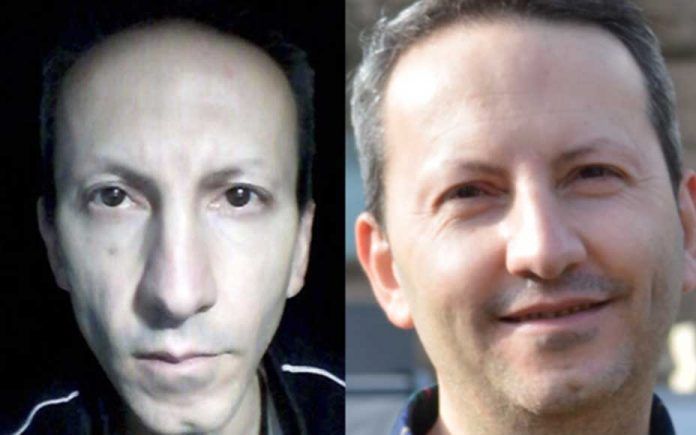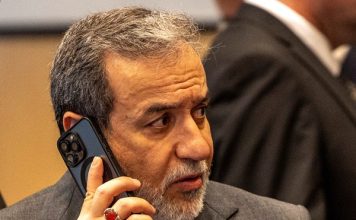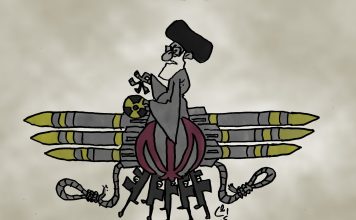The execution of Swedish-Iranian academic Ahmadreza Djalali which was due to take place this week in Iran has been postponed but not canceled, his wife Vida Mehrannia said.
Dr. Djalali was arrested by Iranian security officials while visiting the Islamic Republic in 2016 and charged with espionage for allegedly gathering intelligence for Israel. Djalali was sentenced to death in 2017, but was told by Iranian officials last month that his execution had been fast-tracked to take place on December 2, at the Raja’i Shahr prison.
The expedited sentence was condemned by 153 Nobel laureates, who signed a letter written on November 24 which asked Ayatollah Ali Khamenei to intervene. Another letter signed by 10 international rights organizations and written to the High Representative of the European Union for Foreign Affairs, Josep Borrell asked for the execution to be halted. Swedish Foreign Minister Ann Linde, UN experts and Amnesty International also called for a stop to the execution.
Speaking to Kayhan Life, Ms. Djalali said her husband’s lawyer visited the court on Wednesday to get an update on his case and was told the execution had been postponed but not overturned.
“On Wednesday morning Ahmadreza’s lawyer went to the judiciary to follow up on his case and she was told that the carrying out of his sentence had been stopped and postponed for several days.”
Ms. Djalali said she last spoke to Ahmadreza on Tuesday of last week and that he had asked her, in the event that he might be executed, not to tell their eight-year-old son.
“My daughter knows what is happening and she is distraught. We have not told our son that his father has been sentenced to death. He thinks his father is in Iran on business,” she said. “The last time I spoke to my husband he said, ‘If something happens to me never say to my son they carried out this sentence, please tell him I had a traffic accident.’”
Human rights campaigner Masih Alinejad posted a video of Ms. Djalali on Monday, in which she appealed to the international community for help.
با همسر احمدرضا جلالی دوباره حرف زدم، امشب بیقرار است ، میدانید در این سالها چه خانوادههایی شبهای کابوس دار و اذان و اعدام را تجربه کردند و بارها و بارها مقابل زندانها فریاد زدند #اعدام_نکنید ؟ این حکومت اگر نامش رژیم ترور و وحشت و جنایت نیست پس چیست؟ لعنت به شما https://t.co/f6P8esRoVj
— Masih Alinejad ?️ (@AlinejadMasih) December 1, 2020
“I hope they [the Iranian government] won’t take revenge on him due to the current Iran-Israel conflict,” Ms. Djajali said.
Reports circulated among European diplomats have suggested that Dr. Djalali’s death sentence is linked to the trial of Iranian diplomat Assadollah Assadi. The Austrian-based diplomat was charged in November with terrorism offenses in connection with an alleged plot to bomb an anti-Iran-government meeting in France in 2018, as well as three other accomplices.
The reports suggest that the Iranian government could consider offering Djalali a reprieve if the charges against Assadi in Belgium are dropped.
On Thursday, Belgium’s parliament unanimously voted in a resolution to ask the Iranian government to stop Dr. Djalali’s execution and grant him a pardon. The resolution also calls for the academic’s immediate release.
The United Nations urged the international community to condemn Dr. Djalali’s detention and death sentence.
“We are horrified by the reports that Mr. Djalali is soon to be executed by the Islamic Republic of Iran. His torture, arbitrary detention, death sentence and now reported imminent execution are unconscionable acts that should be condemned by the international community in the strongest terms,” the UN experts said.
Describing her anxiety at not being able to speak to her husband and having to wait for an update on his condition, Ms. Djalali said, “I don’t know what is happening now, but I have hope that the government will want to cancel the sentence.”








